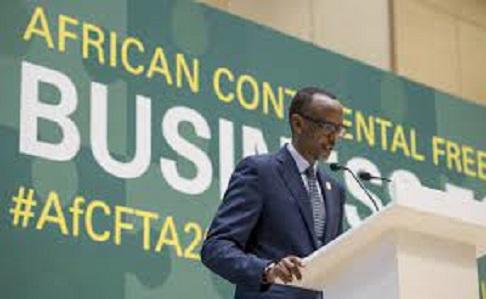Africa-Press – Mauritius. On October 29, 2020, the WTO nominations committee advanced Ngozi Okonjo-Iweala to the group’s 164 members as the next head of the organisation. She would be the first woman and first African to head the trade body.
It was a culmination of months of lobbying and campaigning by African governments and institutions – including Cyril Ramaphosa, the South African president and current chair of the African Union.
Just one member country did not support Okonjo-Iweala’s appointment at the delegates’ meeting – the US. This was as much a demonstration of America’s power as it was a display of the weakness of the African bloc. At the time of writing, a decision on who should be the future head of the WTO had still not been reached.
In a global economy dominated by continent-sized economies like the US, China, India and the European Union, Africa’s 54 small, balkanised individual units will continue to reap sub-optimal results in global economics and politics.
The African Continental Free Trade Area (AfCFTA) presents an opportunity to both bolster intra-regional trade and increase Africa’s negotiating position on the international stage.
But Africa’s perennial position on the bottom rung of the global economic ladder remains a paradox. The continent is home to 17% of the world’s population and the largest share of youth in the world, with 30% of the world’s oil and mineral endowment.
Yet Africa is also home to 70% of the world’s poor. Around 30% of the continent’s population lives in landlocked, resource-poor countries, and intra-African trade is the lowest of all regions of the world.
As a part of its response to this quandary, Africa’s leaders have elected to pool their economic resources and create a single market out of the 54 nations that comprise the African Union.
On completion, this would become the largest free trade area in the world. The AfCFTA will cover a market of more than 1.2bn people and up to $3 trillion in combined GDP, with the potential to increase intra-African trade by over 50%.
With Nigeria’s ratification of the agreement it is gaining legitimacy and is well on its way to implementation. Three challenges
But the world into which the AfCFTA takes its first step is changing in radical ways that portend a turbulent future.
First is the impact of the coronavirus: according to the IMF the crisis “threatens to throw the region off its stride, reversing the development progress of recent years and slow the region’s growth prospects in the years to come.
”
Secondly, there’s the unfolding debt crisis, with Zambia as the canary in the coal mine. Debt levels were already elevated before Covid-19 and the pandemic has heightened the crisis.
Seventy-three countries (low and middle income) at risk of debt distress qualify for the G20’s Debt Service Suspension Initiative (DSSI), which was approved in April. More than a third of those countries are in Africa.
African countries that have not signed up, including Benin, Kenya, Ghana and Nigeria, are concerned that joining the DSSI would affect their credit ratings and close off access to capital markets.
Writing in the Financial Times on 11 October, Ghanaian finance minister Ken Ofori-Atta noted that African finance ministers had requested a debt standstill of two years and $300bn in concessional financing over three years.
Even though this is less than 3% of the over $12 trillion that OECD countries have spent shoring up their economies, it is still not available for Africa. Finally, we are witnessing a partial unwinding of globalisation and the emergence of a world characterised by rivalry and protectionism.
A recent Pew Research survey showed a majority in most industrialised countries hold a negative opinion of China, the highest levels measured in over a decade.
US officials have succeeded in convincing industrialised counterparts in Europe to eschew Chinese hardware in their communication systems. The campaign has extended to Egypt and Brazil as the US seeks to build a “clean network”.
As the US and China ramp up restrictions and bans on firms from the other country, the trade war will soon reach Africa’s shores – and it could not have picked a worse moment.
For More News And Analysis About Mauritius Follow Africa-Press







